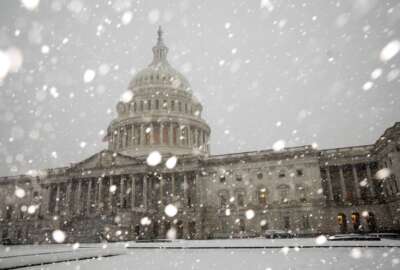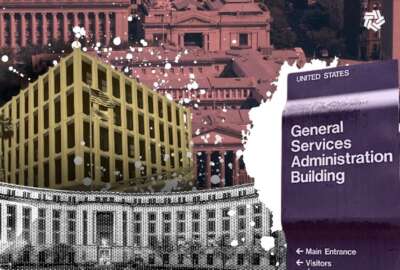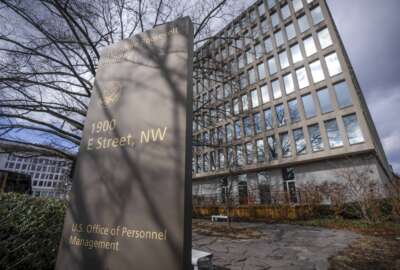Should we run the government like a business?
While some may think running the government like a business is a good thing, the reality is hard to contemplate, says former DHS CHCO Jeff Neal.
Commentary by Jeff Neal
Founder of ChiefHRO.com
& Senior Vice President, ICF International
This column was originally published on Jeff Neal’s blog, ChiefHRO.com, and was republished here with permission from the author.

Is that true? Would we be better off if the U.S. government became more like USGov, Inc.? Is it even possible for government to operate like a business? Would taxpayers benefit? How about citizens who are not taxpayers? Would business imperatives drive better government? Or less government? Or maybe even more government?
When I hear this idea I’m not sure if I should laugh or just shake my head. How many times do we have to lay out the differences in a for-profit enterprise and a government that derives its powers from the consent of the governed and exists to serve them. All of them.
Sure – the government could adopt some business-like practices to improve how it operates, but USGov, Inc. is simply not going to happen. The fundamentals of running a business are not the same as running a government. Businesses exist to return value to their owners. They choose the markets where they want to compete. They almost always want to grow. Good businesses want to serve their customers to grow and build the value of the company. They make decisions based upon what furthers their interests. There is nothing wrong with that. Good businesses are the engine of our economy and a little enlightened self-interest is an important part of that.
Government, unlike businesses, has to serve everyone. It has a public trust because it belongs to the people and it also has substantial coercive power to get what it wants. We can go to jail if we don’t pay our taxes or violate some other criminal statutes. Do we want a government that decides it will not serve the part of the population that isn’t profitable or that doesn’t pay for services? Do we want a government that sees growing itself as part of its mission? The growth aspect is one of the most risky aspects of operating government like a business. Growth is one of the most powerful drivers for a business. It pushes the business to learn, innovate and become more efficient — to find new lines of business, new products, untapped markets and new goods and services and ways to deliver them. It is a powerful force that drives the best (and sometimes the worst) of businesses. I do not want a government that sees its purpose as growing itself.
The factors that drive businesses and those that drive government are so fundamentally different that it is neither possible nor desirable for the government to operate like a business. Let’s look at a few examples.
Recognizing the Value of a Dollar
This is one of the areas where we hear most often that government should be more business-like. It is probably safe to say a successful business is more efficient with a dollar than government. It’s also safe to say if businesses had to live by government budget rules, most would fold within a few years. Businesses get to deal with real money — not government print-all-you-want-and-borrow-for- eternity money — but actual dollars they have to earn. Having to earn the money makes it a bit more precious. Knowing you are bankrupt if you run out and cannot earn or borrow more is a very powerful driver of efficiency. The government is $17,075,000,000,000 in debt, give or take a rounding error of a few billion dollars. What’s another million, billion, trillion, here or there?
Earning real money is only one driver of an efficiency mindset. Another that is equally important is how long and for what purpose those dollars are available. When a business earns one of those real dollars, it can spend it when and how it sees fit. It can save it and spend it next year, or the next, or whenever it wants. It can invest in infrastructure, new staff, systems, training or anything else. We don’t let our government do that. Most agencies get appropriated dollars into specific accounts that turn into pumpkins at midnight at the end of every fiscal year. Everyone knows that causes the mad rush to obligate money and get it spent by midnight on Sept. 30.
Sounds like the answer is simple — just get Congress to appropriate everything as what is known as “no year money” and the problem is solved. Anything that sounds that simple most likely has a catch or two. This one has a big one. Single year money keeps most agencies on a short leash. If the Congress gave it up entirely, a significant part of their oversight power would go away. The same applies to appropriating money for specific purposes rather than giving agencies a general appropriation and allowing the agency to put the money where it can get the best results. Giving the CEO (the President) the ability to act as a CEO would greatly strengthen the Office of the President, weaken the Congress and undermine the constitutional separation of powers. On top of that, the Congress doesn’t get those annual appropriations done on time. The last time all of the appropriations bills were passed on time was 1994. So, (1) business has a better appreciation of the value of a dollar, (2) businesses do not have the tight contraints and artifical expiration date on their money, and (3) Congress would have to give up much of its power to make the change. That is not going to happen.
Cost and Efficiency
Good businesses know how to squeeze costs and eliminate underperforming lines of business. They watch the bottom line and make the hard calls necessary to let the business thrive. Critics say government is too full of bureaucrats to do that. The truth is a large part of government operates very much like a business. The Defense Logistics Agency, for example, get very little appropriated money. It has to earn most of what it spends and has customers that are free to go elsewhere for the products and services DLA sells. They choose not to. DLA made dramatic reductions in costs while supporting two wars. The U.S. Citizenship and Immigration Services (USCIS) operates on fees it earns. Much like DLA, they have made significant changes to the way they operate to reduce costs and improve services. The problem is that squeezing costs and eliminating underperforming lines of business does not always work with a government. If mail delivery in rural areas is not profitable (and it is not), the U.S. Postal Service cannot just stop delivering mail. Charging fees based on consumption if a superb model if you are a utility company, but not so great if you are the Border Patrol, the EPA, the IRS, or most other agencies.
Customer Service
Good businesses care about customer service. Their customers often can and do walk away. I bought my cars from a particular dealer until I had a terrible customer service experience. Now I buy elsewhere. Government doesn’t usually have to worry about that (there are a few exceptions like DLA). If you want to send a letter via first class mail, you have to use the U.S. Postal Service. If you want a Social Security benefit, you cannot got to Joe’s Bargain Social Security. Many critics of government (and even many in government) believe the U.S. government has a lot to learn about customer service. This one sounds fairly cut and dried. Business is better.
Or is it? Some businesses offer lousy service and they not only survive, they thrive. We all have experiences where a business has provided lousy service but is still around. Sometimes, like with my car dealer, we go elsewhere and they lose a customer. Other times, there are not a lot of choices. Even when companies do not have a monopoly, a near-monopoly causes many of the same problems. The truth is that good customer service requires great leadership and well-trained employees who enjoy their work. Agencies that have good leadership and invest in their workforce are providing excellent customer service.
The bottom line is we have a Constitution that was designed to make the federal government less efficient through separation of powers, a partisan political system, a need for the government to serve everyone (not just the profitable ones), and a public trust to maintain. All of those work against operating the government like a business.
Here’s a novel idea – let’s operate the government like a good government.
MORE COMMENTARY FROM JEFF NEAL:
In wake of LAX shooting, real talk needed about TSA
How 20th Century reforms became 21st Century headache for feds
Vultures and 19th Century civil service reform
An Open Letter to Federal Employees
How long does it take to crush a federal employee
Copyright 2013 by Jeff Neal. All rights reserved.
Jeff Neal is founder of the blog, ChiefHRO.com, and a senior vice president for ICF International, where he leads the Organizational Research, Learning and Performance practice. Before coming to ICF, Neal was the chief human capital officer at the Department of Homeland Security and the chief human resources officer at the Defense Logistics Agency.
Copyright © 2025 Federal News Network. All rights reserved. This website is not intended for users located within the European Economic Area.





